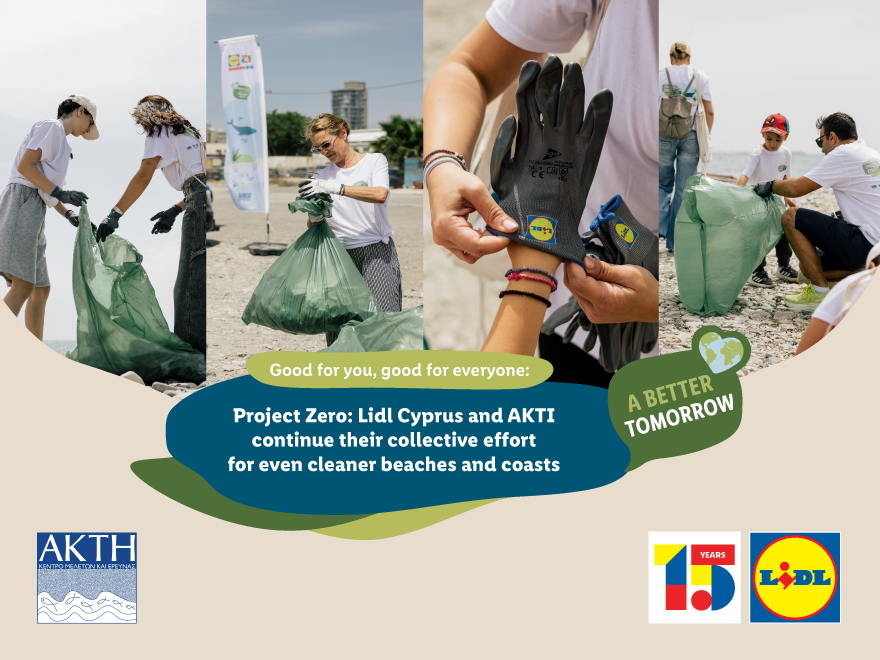Lidl Cyprus and the AKTI Project and Research Centre continue to prove that collective action and knowledge can challenge plastic pollution.
At a time when environmental responsibility is not a choice but an urgent necessity, Lidl Cyprus continues to lead by example with consistent and impactful initiatives. Project Zero, implemented since 2021 in collaboration with the AKTI Project and Research Centre, stands as one of the company’s most targeted actions for the protection of marine and coastal ecosystems.
With environmental education and collective action as its main pillars, Project Zero has so far educated approximately 38,000 students across Cyprus on environmental awareness, focusing on microplastic pollution and the urgent need to protect marine life. At the same time, through a total of 62 coastal and underwater cleanups, more than 13 tonnes of waste have already been collected, making a real contribution to the restoration of natural balance.
The most recent Project Zero cleanup took place on May 17, 2025, with the voluntary participation of Lidl Cyprus employees, once again highlighting the power of action and participation in driving environmental change.
The numbers speak for themselves: 171.5 kg of waste were removed from the shoreline, 75% of which was classified as PMD (plastic, metal, and packaging waste), recorded according to Ocean Conservancy’s international standards. The environmental impact is clear, but the symbolic value is equally powerful: every full bag represents a small step toward the greater good.
This initiative forms part of the #teamLidl corporate volunteering programme, which is embedded in Lidl Cyprus’s broader sustainability strategy and carried out under the Lidl YOU – empowered by #teamLidl platform. Awareness, participation, scientific knowledge, and dedication come together to inspire not only the Lidl team but also the wider community.
Through initiatives like Project Zero, Lidl Cyprus goes beyond the role of a responsible retailer. It stands as an active link in the chain of change that the planet urgently needs. Because action matters when it is consistent and future-focused on our coasts, our communities, and the generations to come.






Click here to change your cookie preferences